An AI program took the math section of China’s college entrance exam, or Gaokao, along with 9.4 million students, solving questions in an extremely short period of time in Chengdu, Sichuan Province, on Wednesday.
The artificial intelligence system, AI-MATHS, developed by Chengdu Zhunxingyunxue Technology, showed off its problem-solving ability in the Gaokao’s two different regions' math test without the support of the item bank in an Internet-free environment. There are several versions of Gaokao test papers in China's different regions.
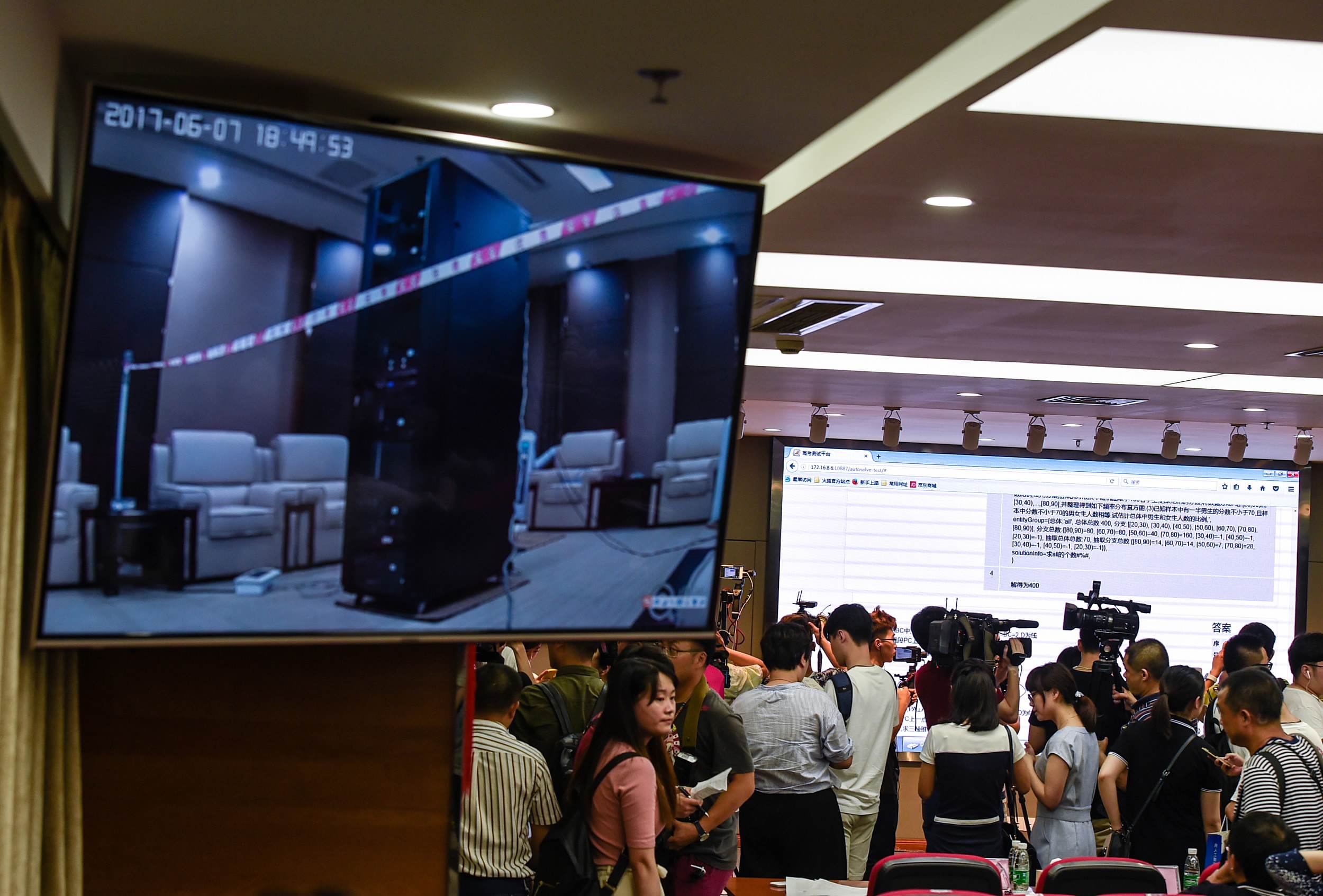
VCG Photo
Students ordinarily take two hours to finish the test, but the AI program completed the math test of Beijing's version in 22 minutes, scoring 105 out of 150. Another test paper was finished in 10 minutes with a score of 100.
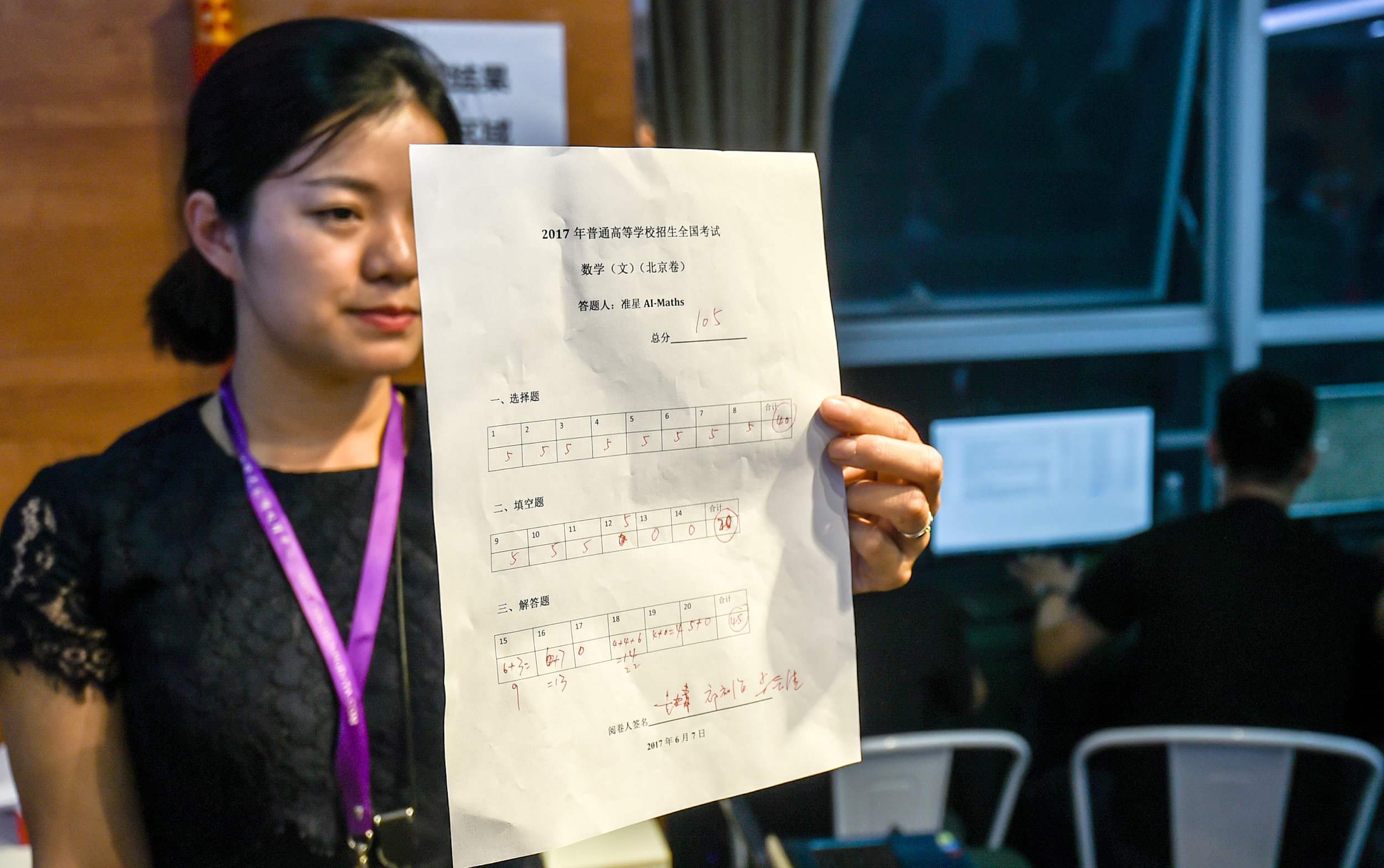
The test paper finished by AI-MATHS. /VCG Photo
AI may be faster than humans in dealing with numbers, but they have difficulty in processing natural language, as the robot scored a zero on those kinds of questions. "For example, the robot is hard to understand the word 'students' and 'teachers' on the test paper," Lin Hui, CEO of Chengdu Zhunxingyunxue Technology, told China News Service.
“I hope next year, it can improve its performance on logical reasoning and computer algorithms and score over 130," Lin said.
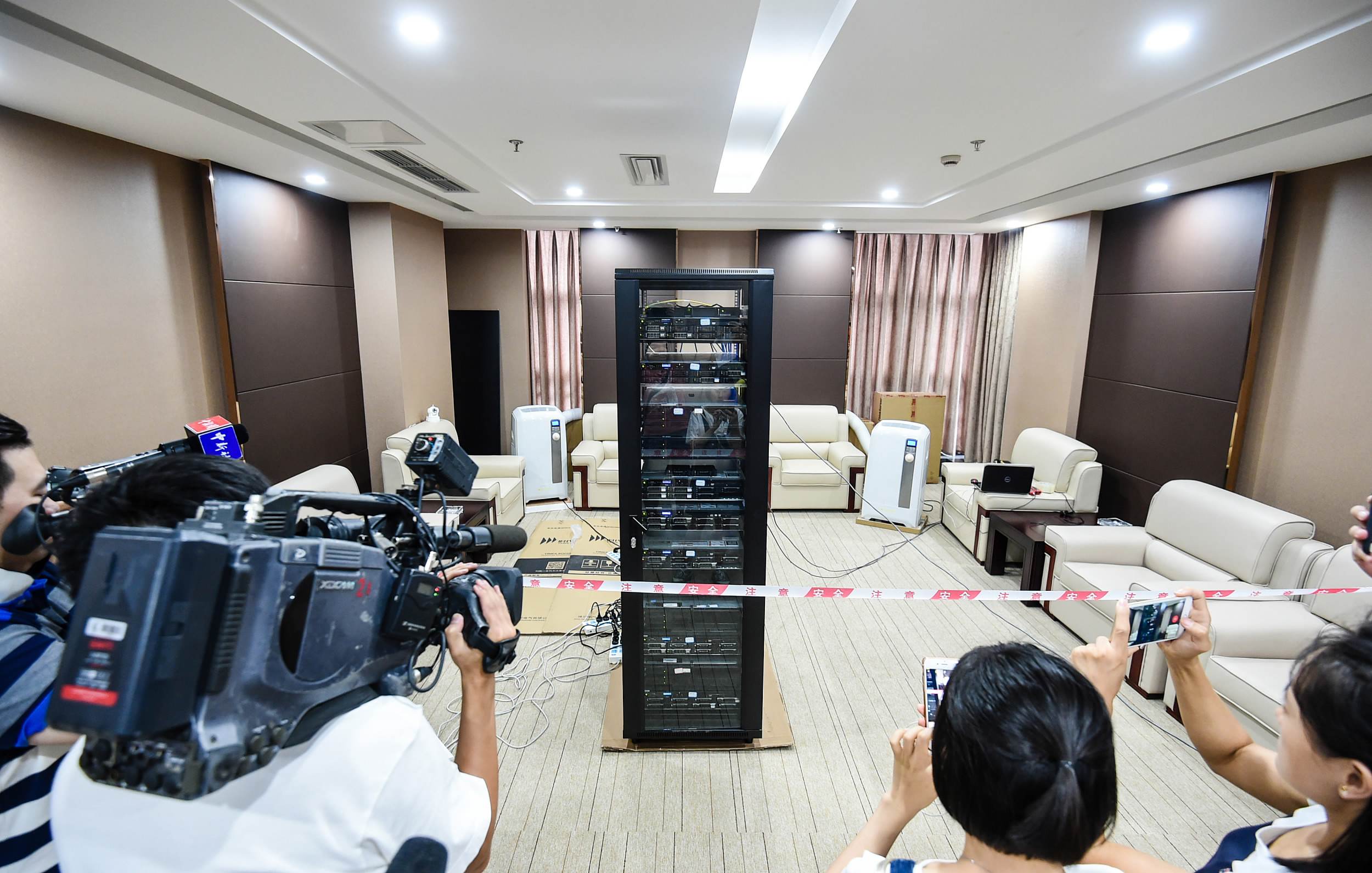
The AI-MATHS /VCG Photo
The company joined the Ministry of Science and Technology's 863 Program in July 2015, planning to develop what they caled, "Gaokao robots." The project is intended to stimulate the development of advanced technologies in a wide range of fields.
Under the plan, by 2020, AI programs will be smart enough to gain admission to leading Chinese universities, such as Peking University and Tsinghua University, through the entrance exam.
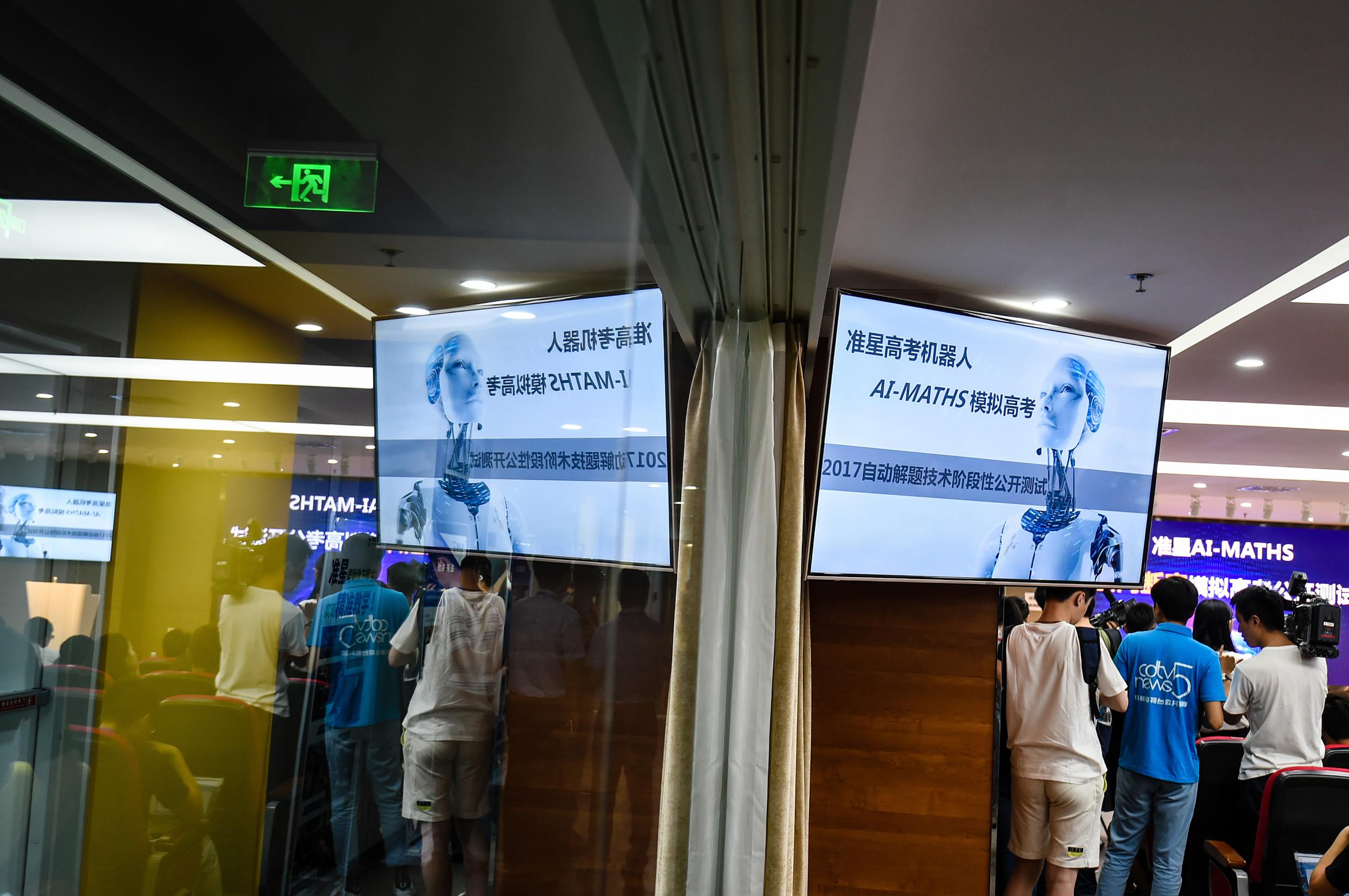
VCG Photo
This was the first time an AI program publicly challenged the mathematics section of the Gaokao. The implication of this act was to arouse people’s awareness of AI’s function in the educational field, Lin told The Paper. He added that they testified its ability of tackling math problems, intending to build a scoring machine that could relieve the workload of teachers.
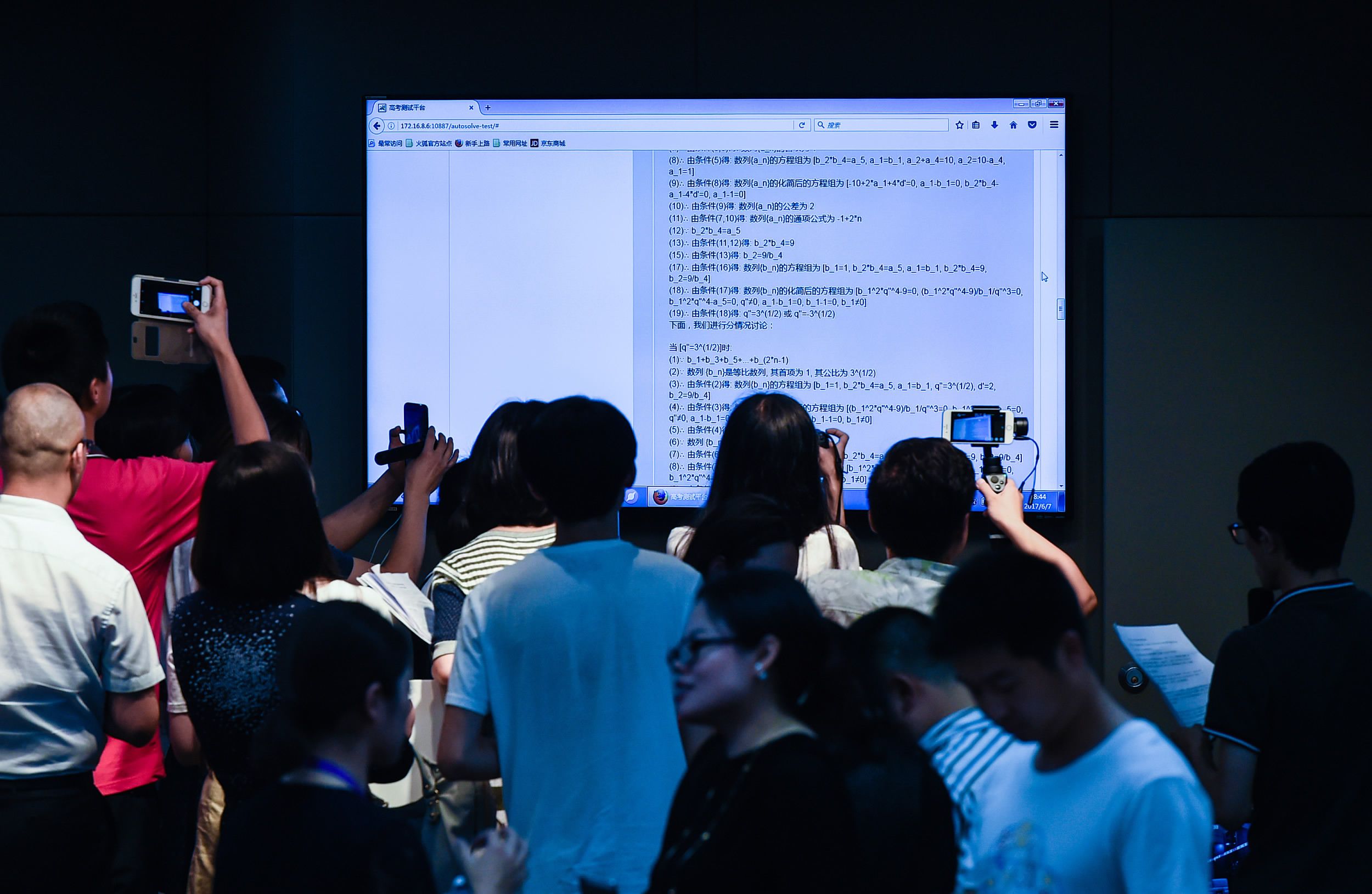
VCG Photo
In the future, the company plans to make program pass different levels of math problems, ranging from elementary to high school level, and then expand the robot’s application to all science subjects.
Related Story:









